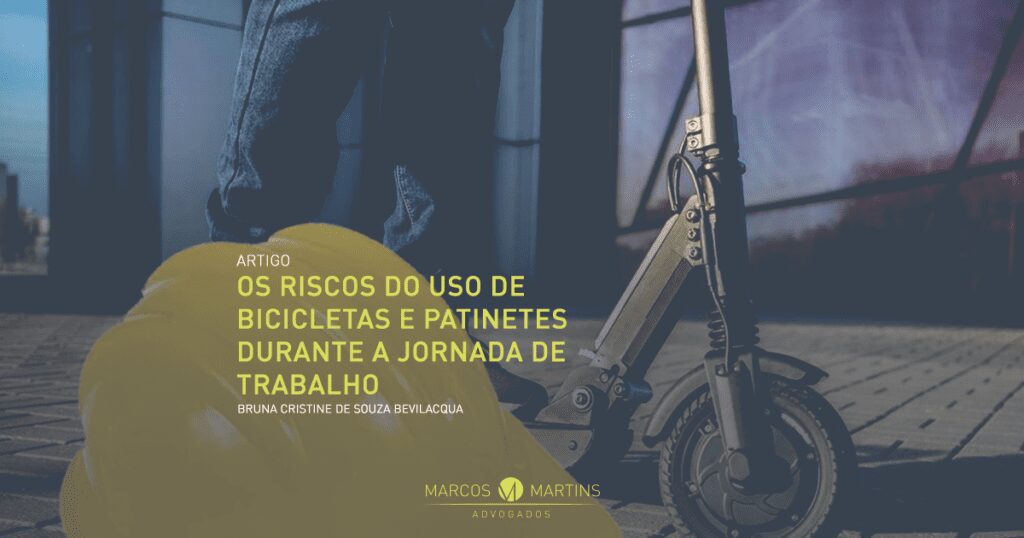Bruna Cristine de Souza Bevilacqua
Lawyer at Marcos Martins Advogados
Every day, it has become commonplace in large Brazilian capitals to use alternative means to get around chaotic traffic, one of which is the use of bicycles and scooters during the working day, as well as being a great incentive for healthy living.
The ingenious creation of apps for the use of e-bikes and other means of transport has made it easier for people to get around in large cities, because it considerably reduces commuting time compared to other means of transport.
Considering that bicycles and scooters have been widely used to get to and from work, or even during the working day to go to a meeting, for example, companies need to be aware of the possible risks of their employees using these means of transport.
The optimization of commuting time has increased Brazilians’ demand for the apps, but it has also alerted companies to the possibility of commuting accidents and raised the risk of employers being held liable and paying compensation.
This is because, although the Labor Reform (Law 13.467/17) has extinguished the figure of hours in itinere, excluding the time at the worker’s disposal during the journey from home to work, the issue is still controversial, and it is not yet possible to conclude that the commuting accident does not constitute an accident at work.
In addition, the issue has come to the fore with the recent revocation of the penalties provided for infractions committed by cyclists with CONTRAN Resolution No. 772 of February 28, 2019[1]. According to the National Traffic Council (CONTRAN), there is no longer any question of fines being imposed on cyclists; however, it should be noted that the rule came into force at a time when there was a considerable increase in the number of fatal accidents involving bicycles.
The fact is that this standard listed minimum safety rules for the use of bicycles or scooters, and so, since the standard is no longer in force, the absence of safety regulations will increase the possibility of accidents occurring.
And so, to make it clearer, in the event that the worker is commuting to work, the employer will be held responsible for the accident, and in a serious case, the employee will be taken off work, with the use of health insurance and a job guarantee for one year, since they will enjoy stability during this period.
Therefore, it is important to note that companies cannot restrict or prohibit the use of new means of transportation, but it is important that they already create mechanisms to train their employees by adopting policies and some rules for the use of bicycles and scooters during working hours.
However, the issue is recent and there is plenty of room for discussion, such as the exclusive fault of the victim when not wearing a helmet, the exclusion of the company’s fault when an accident occurs with an employee who was benefiting from transport vouchers, among others.
There are not many judgments on accidents involving e-bikes, and no court decisions on scooters were found. So, in principle, what is suggested is that companies provide guidance on the risks, possibly even providing safety equipment with tips and implementing some rules and restrictions on the use of these new means of locomotion.
Marcos Martins Advogados has been improving, absorbing and understanding new needs, always looking for the best alternative in the specific case, making the Law not a stratification, but a dynamic tool in favor of its clients in their business decisions.
[1] Art. 1. CONTRAN Resolution No. 772: CONTRAN Resolution No. 706, of October 25, 2017, which provides for the standardization of administrative procedures for drawing up notices of infraction, issuing notices of infraction and notification of penalties for infractions for which pedestrians and cyclists are responsible, expressly mentioned in the Brazilian Traffic Code (CTB), is hereby revoked, and makes other provisions.








